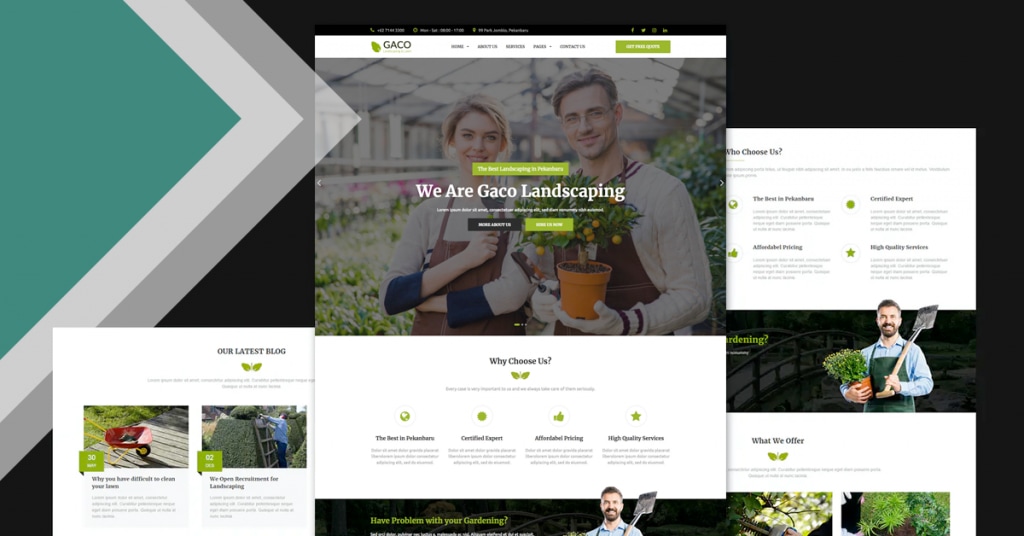
It is undeniable that the modern world is shifting from the traditional brick and mortar shops into the online shopping world. Gone are the days wherein people are hesitant to buy something online. With the rise of eCommerce websites such as Amazon, Lazada, Zalora, Shopee and others, the impact of starting an online business has never been more critical.
What Are Small-Medium Enterprises?
A small to medium business, or SME, are businesses that are usually starting businesses that have few employees. A small business typically has less than a hundred employees, while medium businesses have 100 to less than a thousand employees. Different definitions of SME in Malaysia usually revolve around the number of employees, which determines the scale of your company.
The world of SME is very different from giant corporations as their resources are often limited. For example; finance, talents, technology, tools and data. One of the main goals of SME is to have more customers and expand its business. They typically focus on having a stable income first over creating innovations. Choosing the right business structure is also crucial as it impacts legal and tax obligations.
Whether your SME status is a Startup, Micro, Small or Medium, the right tactics to move your business online must be the spearhead or else risk getting into the cluttered marketplace.
Choosing the Right Online Business Idea
Choosing the right online business idea is fundamental to achieving success in the digital marketplace. With a multitude of options available, the decision-making process can be daunting. However, by following a strategic approach, you can significantly increase your chances of selecting a profitable and sustainable venture. Start by identifying a need or desire within a target market. This involves conducting thorough market research to understand your potential customers’ pain points, interests, and behaviors.
By aligning your business idea with these insights, you can create a product or service that effectively meets their needs and solves their problems. Once you have a clear understanding of your target audience, explore various online business ideas such as e-commerce, freelancing, or affiliate marketing. Each option presents its unique advantages and challenges, so it’s vital to weigh the pros and cons before making a decision. For instance, starting an online store might require more upfront investment, while freelancing could offer greater flexibility but may be less scalable.
Conducting market research to validate your idea is crucial. Utilize tools like surveys, focus groups, and social media polls to gather feedback and ensure there’s a demand for your offering. By following these steps, you can confidently choose an online business idea that is both profitable and sustainable, setting the foundation for a successful online venture.
Identify a need or desire within a target market
Identifying a need or desire within your target market is the initial step in selecting the right online business idea. This requires in-depth research of your audience to comprehend their pain points, interests, and behaviors. By understanding these aspects, you can develop a product or service that effectively addresses their needs and resolves their problems. For instance, if you’re planning to venture into e-commerce, you might explore popular products on social media platforms like Instagram and TikTok.
Additionally, utilizing online tools such as Google Trends and Keyword Planner can help identify trending topics and keywords. These insights into what your potential customers are searching for will guide you in crafting a business idea that resonates with them. Once you have a solid grasp of your target market, it’s time to explore various online business ideas. Options like e-commerce, freelancing, or affiliate marketing each offer unique advantages and challenges. For example, launching an online store might demand more initial investment in inventory, whereas freelancing can offer more flexibility but may not be as scalable.
It’s crucial to weigh the pros and cons of each option through thorough market research. By employing tools like surveys, focus groups, and social media polls, you can validate your starting online business’ idea and ensure there’s demand for your product or service. These steps will enhance your ability to choose an online business idea that is both profitable and sustainable, laying the groundwork for a successful online venture.
Explore online business ideas, such as e-commerce, freelancing, or affiliate marketing
Once you have a good understanding of your target market, you can start exploring different online business ideas. Some popular options include:
E-commerce: Starting an online store and selling physical or digital products.
Freelancing: Offering services like writing, design, or consulting on a freelance basis.
Affiliate marketing: Promoting other people’s products or services and earning a commission on sales.
Each of these options has its own advantages and disadvantages, so it’s essential to research and understand the pros and cons before making a decision. For instance, an online store might require more upfront investment in inventory, while online courses or freelancing could offer more flexibility but might be less scalable.
Conduct market research to validate your idea
Conducting market research is an essential step to validate your online business idea. By gathering data and feedback from potential customers, you can ensure there is a demand for your product or service. Utilize online tools such as surveys, focus groups, and social media polls to collect valuable insights. Additionally, leverage data analytics tools like Google Analytics to track website traffic and user behavior. This comprehensive approach helps you make informed decisions, ensuring that your investment of time and resources is directed towards a venture with a high likelihood of success.
By following these steps, you increase your chances of selecting a profitable and sustainable online business idea. Validating your concept through market research not only confirms demand but also provides a strategic foundation for your business plan. This proactive approach allows you to adapt and refine your offerings to better meet the needs of your target market, ultimately setting the stage for a successful online business venture.
Defining Your Target Audience
Defining your target audience is an essential step in building a successful online business. By gaining a deep understanding of who your ideal customer is, you can develop products and services that are precisely tailored to meet their needs and solve their problems. This process begins with thorough research into demographics such as age, location, income, and education level, enabling you to craft offerings that align with your audience’s preferences and lifestyle.
For instance, if you’re launching an e-commerce business focused on clothing, targeting young adults aged 18-30 living in urban areas with a medium to high income can be a strategic decision. Additionally, honing in on customers with a college education who have interests in fashion and lifestyle can further fine-tune your approach. Once you have a comprehensive understanding of your target audience, you can create a marketing strategy that effectively engages them and drives sales.
This insight not only aids in crafting persuasive content marketing and messages but also informs product development and overall business strategy. By aligning your efforts with the desires and expectations of your potential customers, you increase the likelihood of establishing a successful and sustainable online business. Defining your target audience lays the foundation for a business model that is both customer-centric and profitable, setting the stage for growth and success in the competitive digital marketplace.
Determine demographics, such as age and location
Identifying the demographics of your target audience is a fundamental step in shaping your online business strategy. By examining key characteristics such as age, location, income, and education level, you can develop products and services that align with your ideal customer’s needs and preferences. For instance, if you’re venturing into an e-commerce business selling clothing, it might be strategic to focus on young adults aged 18-30 living in urban areas with a medium to high income.
Further refining your approach paid advertising by targeting customers with a college education who have interests in fashion and lifestyle can enhance your marketing effectiveness and drive sales.
Aligning your marketing efforts, product development, and overall business strategy with these demographic insights can significantly boost your chances of success in the online marketplace. Here are some critical demographic factors to consider:
Age: What is the age range of your ideal customer?
Location: Where does your ideal customer live?
Income: What is the income level of your ideal customer?
Education: What is the education level of your ideal customer?
By defining your target audience, you lay the groundwork for a customer-centric business model that is both profitable and sustainable, paving the way for growth and success in the competitive digital landscape.
5 Things You Need To Start Building Your Online Business and Branding
1. Brand Logo

A logo is more than just a visual differentiator for your website; it plays a crucial role in conveying the essence of your business. As the saying goes, a picture is worth a thousand words, and the color scheme, design, fonts, and icons used in your logo can significantly impact your brand identity. For instance, businesses in the fashion industry often use colors strategically to appeal to their target customers.
Brands targeting younger, more feminine audiences might opt for pastel colors like pink to emphasize their company’s femininity. Conversely, designer brands aiming to showcase elegance often use a minimalist black and white color scheme. In essence, a logo serves as a symbol that represents your business’s core values and mission.
Imagine displaying your business with a logo reminiscent of Batman’s—this might suggest that your operations thrive at night, adding a unique twist to your brand narrative. However, it’s crucial to ensure your logo resonates with your brand’s identity and message. By doing so, you create a powerful visual representation that not only differentiates you from competitors but also connects with your audience on a deeper level.
2. Corporate Identity

Have you ever recognized a fast food restaurant just by glancing at its advertisement? That’s the power of a solid corporate identity. Establishing a strong corporate identity involves selecting the right color scheme for your ads, designing unique logos and fonts, and maintaining a consistent tone in your press releases. These elements differentiate your brand from competitors and create a memorable impression on your audience.
To maintain this consistency, consider developing a Corporate Identity Kit, which ensures your brand tone remains cohesive across all platforms and reflects exceptional management skills. A well-defined corporate identity not only enhances brand recognition but also builds trust with potential customers. By presenting a unified brand image, you establish credibility and convey professionalism, which can significantly impact customer perception and loyalty.
This strategic approach to branding is essential for small to medium enterprises (SMEs) looking to stand out in the competitive online marketplace. Investing in a strong corporate identity is a crucial step in building a successful online business, as it lays the foundation for effective marketing and brand growth.
3. Sales-Driven Website

Bringing your business online is the most crucial step in competing in today’s marketplace. Nearly 90% of people find local businesses through internet searches, yet only 20% of small business owners have established a website. This represents a significant missed opportunity for SMEs to attract more customers and generate additional revenue.
Operating your own online store allows you to track orders and profits without the constraints of third-party platforms, thereby enhancing the overall selling experience. In today’s digital age, having an online presence is no longer optional; it’s essential for maintaining credibility and establishing social proof for your business. Without a strong online presence, businesses risk being overlooked in the competitive digital landscape.
A well-designed website not only boosts your brand’s credibility but also provides a platform for showcasing your products or services to a broader audience. By leveraging the power of the internet, you can reach potential customers far beyond your physical location, increasing your chances of success. Investing in a professional website and optimizing it for search engines can significantly enhance your visibility, attract more customers, and ultimately drive more sales, setting the foundation for a successful online business.
4. Clear Domain Name

A successful business website hinges significantly on selecting the right domain name. While many businesses opt for a domain that relates directly to their company name, a strategic approach can optimize your website for search engine rankings. By integrating relevant keywords into your domain name, search engines are more likely to prioritize your website, enhancing visibility over competitors.
This advantage in SEO is crucial for driving organic traffic and achieving sustainable online sales. Moreover, harnessing the power of Search Engine Optimization (SEO) is essential for any business aiming to succeed online. Incorporating the right domain name not only improves your website’s search engine ranking but also establishes a strong online presence. A well-chosen domain can set the foundation for effective SEO strategies, ensuring your business stands out in the crowded digital marketplace.
By leveraging SEO techniques, you can attract more potential customers, increase your brand’s visibility, and ultimately boost your sales. This approach is vital for businesses looking to thrive in the competitive online environment, making the selection of a domain name a pivotal step in building a successful online business.
5. Web Design Style

In addition to selecting a memorable domain name, ensuring your website has an appealing web design is crucial for attracting and retaining customers. A staggering 38% of internet users will leave a site if its content layout is poor or visually unappealing. Even if you dominate search engine results, a lack of mobile or tablet optimization could lead to losing potential customers.
The difference between merely having a website and owning one with an exceptional design lies in its ability to showcase your business’s best attributes. A well-designed site not only highlights your offerings but also invites visitors to engage with your brand. By prioritizing user experience and aesthetics, you create an online presence that resonates with your audience, ultimately encouraging them to explore and invest in your products or services.
Ecommerce Facility Online Store
For small to medium enterprises (SMEs), creating a website with an integrated eCommerce facility is crucial for enhancing sales and customer experience. Unlike a standard website, an SME site with eCommerce capabilities allows customers to seamlessly purchase products or services, streamlining the buying process and improving overall efficiency. This integration not only automates sales but also ensures a smooth transaction experience, which is vital for customer satisfaction.
Choosing the right eCommerce software is essential to effectively sell online and provide a user-friendly interface that meets customer expectations. Additionally, incorporating an eCommerce page within your website allows you to effectively address customer inquiries through a comprehensive FAQs section. This feature provides quick answers to common questions about payment and shipping, enhancing transparency and trust.
Whether you’re selling products or services, this approach offers clarity and convenience, encouraging more purchases. By optimizing your own website, with these elements, you can elevate customer engagement and drive sales, setting a solid foundation for a successful online business.
Branding Companies
If all of this sounds overwhelming, you’re certainly not alone. Large corporations typically have in-house marketing teams dedicated to building a strong online presence. However, small to medium business owners often lack these resources, making it challenging to manage everything from daily operations to brand development. The tasks of shipping raw materials, handling excellent customer service, and maintaining a competitive edge can be daunting for any business owner.
Despite these challenges, it’s undeniable that a strong brand presence can significantly boost your business’s income. Fortunately, there are branding companies available to help small to medium enterprises build their brand effectively. By hiring experts, you can focus on running your business while they handle everything from logo design to website development, ensuring your brand stands out in the crowded digital marketplace. This strategic partnership not only enhances your brand identity but also positions your business for sustainable growth and success.
What Is A Branding Company
For SME owners, enlisting the services of a branding company offers a significant edge over competitors. With a dedicated team of experts managing everything from logo creation to website development, you can focus on your core business operations without the stress of crafting a compelling online presence.
Establishing a strong brand identity is crucial but can be challenging, as it requires balancing your business’s unique attributes with the needs and preferences of your potential customers. By partnering with a branding company, you ensure that your brand effectively communicates its identity while resonating with your target audience. The process of defining your brand is often complex, as it involves aligning your business’s core values with the expectations of your customers.
A branding company simplifies this task by providing insights and strategies that not only define your brand but also enhance its visibility in the competitive digital marketing landscape. This partnership allows you to leverage professional expertise to create a brand that stands out, attracts the right audience, and ultimately drives growth and success for your online business. By investing in professional branding services, you set a solid foundation for a sustainable and profitable online venture.
Benefits Of Engaging A Branding Company
Easily attract the right target audience
Having a well-designed logo is a crucial asset for any online business, as it serves as a powerful tool to attract and engage your target audience. A thoughtfully crafted logo and corporate identity design can effectively convert casual viewers into loyal customers, enhancing your brand’s appeal and credibility. By establishing a strong visual identity, you create an immediate connection with potential buyers, making your business more memorable and trustworthy.
Moreover, a compelling logo helps differentiate your brand in the crowded digital marketplace, setting you apart from competitors. It communicates your brand’s values and mission, making it easier for your target audience to relate to and choose your offerings. This strategic branding approach not only boosts customer acquisition but also fosters brand loyalty, ultimately driving sales and growth for your online business. Investing in a distinctive logo and cohesive corporate identity is an essential step towards building a successful and sustainable online presence.
Being unique in the online world
In the vast online marketplace, competition is inevitable. The ability to reach a wide customer base also means you’re up against numerous other businesses. However, with a powerful and well-optimized website, you can elevate your business from obscurity to becoming a leader in your local area. This transformation hinges on leveraging effective SEO strategies that enhance your online visibility and attract potential customers. By ensuring your website is search engine-friendly, you can improve your rankings and draw more traffic, ultimately increasing your chances of success in the digital world.
Moreover, establishing a strong online presence not only sets you apart from competitors but also builds credibility and trust with your audience. A well-designed website, coupled with strategic SEO practices, can help you connect with your target market more effectively. This approach not only boosts your brand’s recognition but also fosters customer loyalty, driving sustainable growth for your online business. By investing in SEO expertise, you ensure that your business stands out in the crowded online landscape, paving the way for long-term success and profitability.
Easier transaction process
Integrating online payment solutions like PayPal and Stripe has revolutionized the way small to medium enterprises (SMEs) manage transactions. These platforms offer a secure and efficient method for handling payments, significantly reducing the risk of fraud. By providing real-time access to financial data, they simplify the tracking of income and expenses, saving business owners valuable time and enhancing overall operational efficiency. This streamlined financial management approach is invaluable for SMEs looking to optimize their business processes and focus on growth.
Equally important is the establishment of a dedicated business bank account, which is crucial for maintaining financial clarity. By separating personal and business expenses, SMEs can ensure accurate financial tracking, which is essential for hiring employees and managing payroll. This separation also simplifies tax preparation, providing clear records that help in meeting legal and tax requirements. By adopting these financial management strategies, SMEs can effectively position themselves for success in the competitive online business landscape, ensuring a solid foundation for sustainable growth.
Avoid redoing everything
Although managing everything on your own is feasible, as your business expands, the value of a strong brand becomes increasingly apparent. Rebranding at a later stage may result in losing customers who are accustomed to your current brand identity, as they might feel disconnected from the new branding strategies. Moreover, the expense of rebranding and promoting your new identity can surpass the cost of establishing a robust brand from the outset. By investing in effective branding early, you can maintain customer loyalty and circumvent the challenges associated with rebranding.
Creating a strong brand from the beginning not only prevents potential customer alienation but also offers a competitive advantage. A clearly defined brand identity from the start enhances your online presence, facilitating the attraction and retention of customers. This strategic approach fosters quicker business growth and a more sustainable income stream. By prioritizing impactful branding initially, you lay the groundwork for enduring success in the competitive online business environment.
Head start against competitors
Having a strong brand from the outset provides a significant advantage in the competitive online marketplace. By establishing a powerful brand presence early on, you can quickly attract and expand your customer base, leading to faster business growth and a more sustainable income stream. This proactive approach to branding ensures that your business stands out from the competition, effectively capturing the attention of potential customers and fostering long-term loyalty.
In contrast, businesses with weaker branding may struggle to gain traction and establish a foothold in the market. Investing in a robust brand identity from the beginning not only enhances your online presence but also positions your business for success. By prioritizing branding and digital services, you lay a solid foundation for growth, allowing you to navigate the digital landscape with confidence and achieve your business goals more efficiently.
Hiring experts in the field
Many SME owners find themselves overwhelmed by the myriad of daily tasks they face, making it beneficial to hire branding experts. Engaging professionals allows you to bypass the steep learning curve of ever-evolving marketing methods, providing you with expert insights on crucial branding elements that resonate with your brand and attract new customers. Branding plays a pivotal role in drawing in more customers and ensuring a stable income, offering you the chance to elevate your business to new heights, akin to leveling up in Super Mario Brothers. You’ll be amazed at how a branding company can significantly accelerate and expand your business.
Returning to the initial question of when to start your own online business, the answer is clear: NOW. By taking the leap today, you position yourself to harness the power of expert branding and marketing strategies, setting the stage for a successful and sustainable online venture. Don’t wait for the perfect moment; seize the opportunity to establish a strong brand presence and capture your slice of the digital marketplace.




